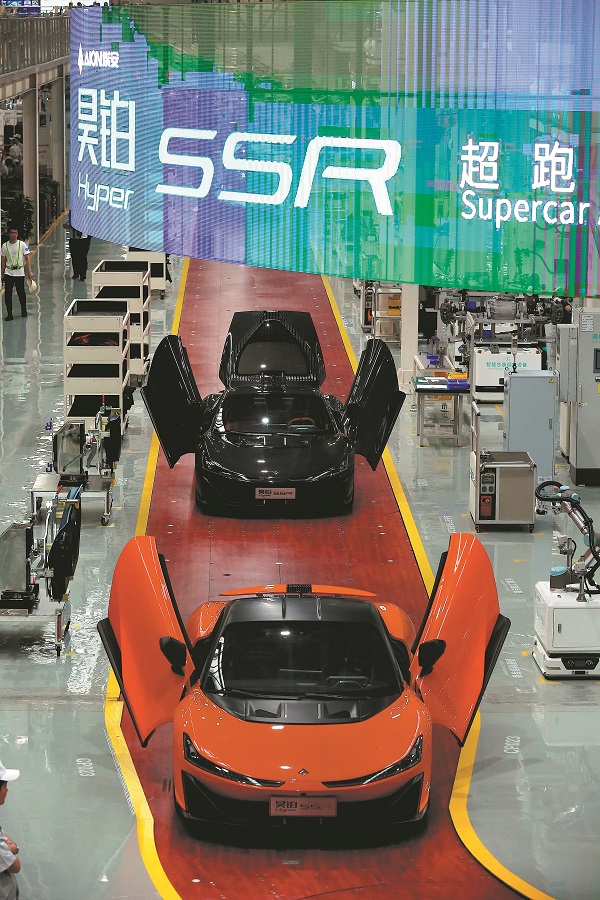China's driverless vehicles taking fast lane to success
As consumers look to upgrade to smarter electric autos, fully self-driving cars are getting closer
By LI FUSHENG | CHINA DAILY | Updated: 2024-03-29 07:07

Greenlight ahead
While automakers are gradually advancing from Level 2 functions, autonomous driving companies are placing a greater emphasis on driverless vehicles, classified as Level 4 or above, although some tailor Level 2 systems for car manufacturers as well. Despite their ambitions, they are less widely known among the public than the carmakers who sell such vehicles.
"Compared with driving-assist features found in private cars, autonomous driving will start from designated zones and gradually expand," said Thomas Fang, a partner at McKinsey's Shanghai office.
One example is self-driving startup Pony.ai, which is backed by Toyota, the world's largest vehicle maker by sales.
Pony.ai runs fleets of driverless taxis in designated zones in four of China's tier-one cities: Beijing, Shanghai, Shenzhen and Guangzhou in Guangdong province. In Shenzhen, it offers 200 such rides a day.
Local government authorities are helping facilitate the technology's development. Pony.ai and Baidu were given permits in February to offer driverless-vehicle services at Beijing Daxing International Airport.
The two companies are also able to provide autonomous vehicles on the 40-km expressway connecting Beijing Daxing International Airport and the city's urban areas, as well as in some designated areas within the airport.
The Beijing municipal government has also unveiled plans to expand the scope of demonstration zones for high-level autonomous driving this year and promote self-driving services in areas such as airports and railway stations.
Chen Zhuo, general manager of Baidu's self-driving business unit, said the company is concentrating on expanding its commercial robotaxi fleet.
Like Pony.ai, Baidu's Level 4 autonomous vehicles are currently operating in designated zones in several cities, including Beijing, Chongqing, Wuhan, Hubei province and Shenzhen.
The company plans to expand its fleet size and operational area, and build the world's largest fully driverless ride-hailing zone, he added.
In the third quarter of 2023, its robotaxi fleet, Apollo Go, provided 821,000 rides, up 73 percent year-on-year. Didi offered 2.87 billion rides in the same period.























